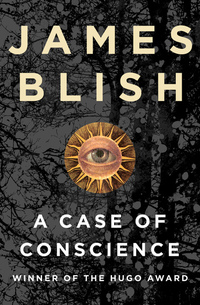Rather Be the Devil by Ian Rankin
 Monday, January 30, 2017 at 8:43AM
Monday, January 30, 2017 at 8:43AM 
First published in the UK in 2016; published by Little, Brown and Company on January 31, 2017
Having taken an unwanted pension, Rebus is contemplating the unhealthy results of a life spent smoking, drinking beer, and brooding over unsolved crimes. Not one to let a bit of lung cancer get him down, Rebus begins to nose around after learning from Siobhan Clarke that gangster Darryl Christie has been roughed up. A rival gangster is also interested in learning who attacked Christie.
Darryl Christie and Joe Stark are suspected of doing away with a rogue cop who nearly did away with Malcolm Fox when he was still with Professional Standards. Now Fox is a Detective Inspector in Major Crimes whose first assignment is to learn what he can about Christie’s beating without stepping on the toes of DI Clarke, who is heading the investigation in Edinburgh.
All of this leads Rebus to look into a closed case involving the death of Maria Turquand. Bruce Collier, lead singer for a popular band in the 1970s, was among the persons questioned, but one of Maria’s lovers was deemed the most likely suspect (her wealthy banker husband having been ruled out by virtue of an alibi). There are, of course, several other suspects, given the number of people associated with a band and the fact that Maria was killed in the hotel where the band was staying.
The cold case had last been reviewed by DI Robert Chatham. The review was prompted by a writer who specialized in books about unsolved crimes. They both become important characters who contribute to a subplot in addition to the main story.
The story branches off to encompass a Ukranian gangster, an assortment of British gangsters, Fox’s gambling-addicted sister, money laundering, and an assortment of beatings, killings, and snitchings. The plot is complex but not confusing (although it does tax the memory and might require a bit of note-taking to keep track of all the suspects). As a Rankin fan would expect, the plot resolution is clever.
Occasional references to folk and rock musicians from the UK had me drifting to YouTube to get a sense of the music that surrounds the story. Some of it isn’t bad. Rebus particularly likes Rory Gallagher, whose “concept album” Kickback City includes -- surprise, surprise -- a contribution by Ian Rankin. No surprise, then, that Rebus plays Kickback City on his car stereo.
As always, unexpected bits of humor enliven the novel, usually in the form of dialog. Characterization and plotting are always strengths in a Rankin novel. Rather Be the Devil is no exception. It’s a solid entry in a dependable series.
RECOMMENDED



